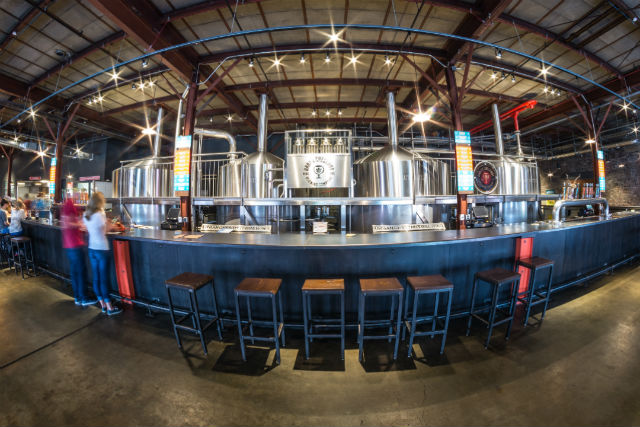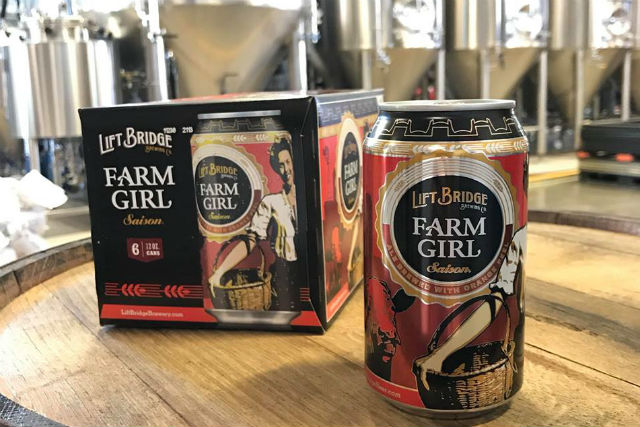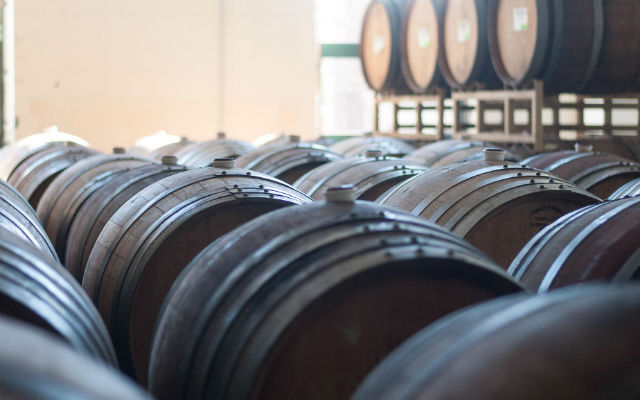
In January, Urban Chestnut Brewing was named one of the EPA’s 16 national WasteWise Award Winners for their sustainability efforts in 2017, earning Small Business Partner of the Year.
Urban Chestnut made sustainability a major focus of its business plan since its inception in 2011. Whenever possible, sustainable design and sustainable processes have been implemented at the point of installation.
Its award-winning LEED (Silver) Certified production facility on Manchester Ave in St. Louis is one example. The industrial processes and technological investments enable UCBC to minimize its waste footprint at all times, while simultaneously engaging in ongoing opportunities to improve as the company expands its operations.
“I think the goal of LEED certification for the build out of our production facility … was intended to solidify Urban Chestnut’s commitment to being a responsible member of the craft brewing industry,” said Kurt Driesner, the brewery’s Quality Assurance Manager.
The process lasted throughout the rehab, construction and installation of the new facility over a six-month timeframe. Urban Chestnut opened the Manchester facility in 2014 and received the LEED Certification simultaneously.
“Craft brewing is built on relationships with your community and we want to share, not only our beer, but our efforts in being a good steward with the resources and support generated by those relationships,” Driesner added.
Participating in WasteWise enables Urban Chestnut to communicate and share its approach in the hope that the message may assist others in craft brewing and other industries.
In 2016, UCBC diverted 96 to 97 percent of its solid waste to recycling and repurposing. The company has solid waste diversion programs for spent grain (1.1 million pounds), wood pallets (28,000 pounds), and high density polyethylene barrels (500 pounds).
In the coming years, UCBC plans to focus on improving its ability to track its processes to deliver more accurate and meaningful cost savings numbers and further improve its operational efficiencies.
Driesner pointed out that the process for LEED Certification is outlined in great detail — and with education and various resources — on its website.
Anyone can check out Urban Chestnut’s LEED scorecard online as well.
“It is nice because this information is accessible to the public so there is visibility in what we did and what we are doing,” Driesner said.
A great deal of the 21 points the brewery earned towards Silver were linked to the building itself and partnership with Green Street, their developer.
Rounding out the remaining points was innovation and efficiency in the process, energy usage through the brewhaus, as well as properly scaled cellar and packaging equipment, with a few bonus points for recycling efforts during construction.
“Honestly, our developer was a huge help and partner in initiating and accomplishing the certification,” Driesner said as UCBC is the only brewery in Missouri to earn the status.
The WasteWise program recognizes organizations ranging from small nonprofits to large multinational corporations that demonstrate significant effort to prevent and divert waste.
Partners demonstrate how they reduce waste, practice environmental stewardship and incorporate sustainable materials management into their waste-handling processes. Endorsers promote enrollment in WasteWise as part of a comprehensive approach to help their stakeholders realize the economic benefits to reducing waste.
Recognition is a key element of EPA’s Sustainable Materials Management (SMM) Program and WasteWise. Awards are based on self-reported data in the categories of waste prevention, recycling and disposal.




1 Trackback / Pingback